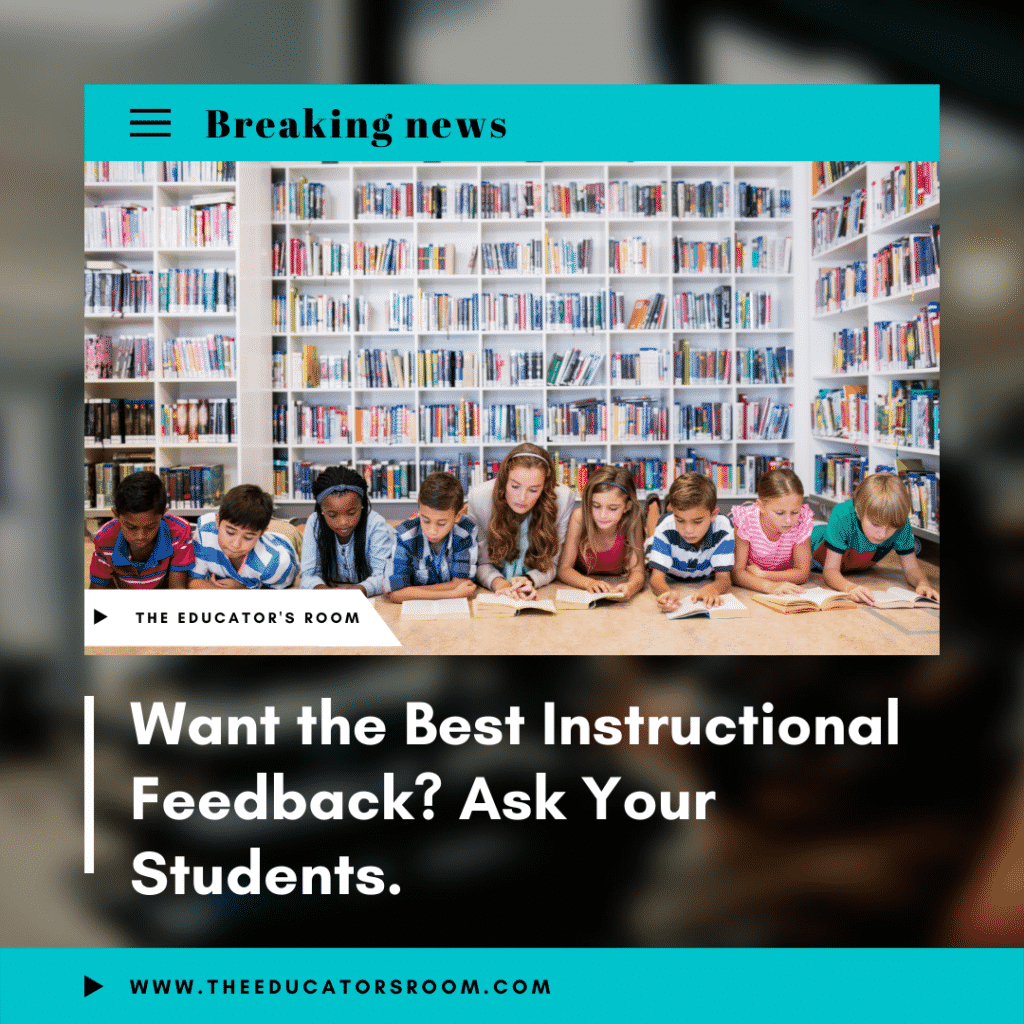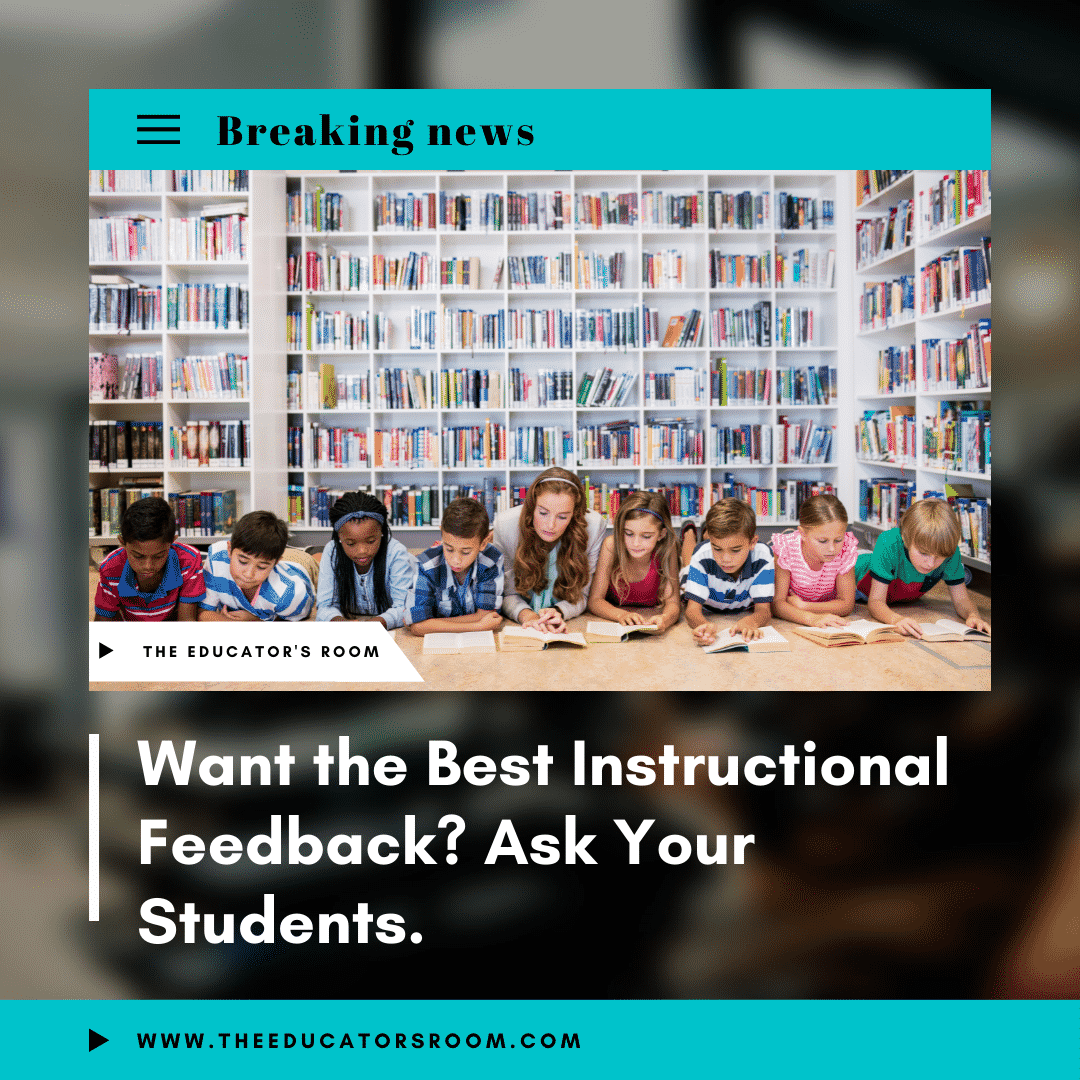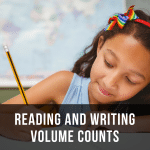There came a time in my teaching career where I had to ask myself whose opinion about my instruction matters more: the administrator who comes to my classroom maybe four times per year or the students with me for 180+ days?
When I started implementing the instructional feedback from my students, my instruction and student engagement improved tremendously. I had a clearer picture of how students were learning, what they needed, and how invested they were in their learning. Was this foolproof? No. Where 100 percent of my students invested in the process? No. But everyone benefited from the students who provided incredible feedback.
When Asking for Instructional Feedback, Check Your Ego.
To receive instructional feedback from your students, you have to check your ego. They are going to say things that you don’t like. They are going to say things that are unexpected. Things will not always go your way, but all of this provides an amazing opportunity for professional growth.
Students can be brutally honest, so don’t take this personally. Count this as a win because if students are willing to critique your professional practice without fear, then you have made them comfortable to do so. If you are going to do this, you have to be open and willing to receive criticism.
You have to know what to take with a grain of salt and what is valid. There are going to be students who ask for movie days and free time, but they’re also are going to be students who ask for more brain breaks, clearer directions, and more opportunities to reteach and review. Surprisingly I had students who asked to read more books and write more stories, research papers, and essays. I know what you are thinking, “these are the ‘academic achiever students.” No. A student whose grade was never above a D in my grade eight language arts class, consistently asked to read more books because that was his favorite part of the class.
Empowering Your Students by Using their Feedback
Not only do you grow, but your students do also. By using and acknowledging the instructional feedback that students have provided in your class, you give students a voice in their learning. My students were more motivated when I used their ideas to plan my instruction. I acknowledged this by saying, “This idea actually came from a student in my first-period class” or “I heard you all when you said that you wanted more brain breaks, so I am going to try to implement one into every lesson.” Students realize that their choices and opinions matter when you empower them to take a more active role in the class community.
Ideas for Implementing Students’ Feedback
Prior to the pandemic, I would ask for instructional feedback at the end of the lesson. I also had an end-of-the-year survey, so I could understand how to improve my language arts class for next year. That was a start, but that was selfish. The students could not benefit from lessons already taught and a year that was already over, so I started asking students about the activities we did during the lesson. Sometimes it was a whole-class discussion, and sometimes it was a question added to a worksheet such as “What did you like/not like or about this activity?” or “Give Ms. Higgins one suggestion to make this activity for the next time.” or simply, “Is this an activity that I would want to do again?”
This can even start day one by asking students, “What are some activities that they have enjoyed from previous classes?” Because of this question, Kahoot became a weekly staple in my virtual instruction.
During virtual learning, I added more surveys. I did surveys about each unit to gauge interest and aid me in planning for the next unit. I used Google Forms and Schoology to create surveys for students to complete that were easily accessible and user-friendly. While using Google Meet, I would use polls or even survey the students in the chat to get real-time instructional feedback. As a result, the majority of students participated in my virtual instruction.
Final Thoughts
I remember early on in my career I was speaking with a veteran high school English teacher. She had given a quiz she created on the required reading for an eleventh-grade honors class. Twenty-four out of twenty-five students had failed the quiz. She blamed the students, but when 96% of the class fails, I blame the teacher.
Asking students for genuine instructional feedback is not an easy thing to do. It requires vulnerability in a profession where our instinct is to defend ourselves. The truth is that you can still be an incredible teacher and still need to grow, but you have to decide that you want to grow.








Hi,
I thought I would mention that it looks like the word “Groth” is spelled incorrectly on your website. I’ve seen some tools to help with problems like this such as SpellAlert.com or WebsiteChecker.com. I just thought you should know!
-Frank